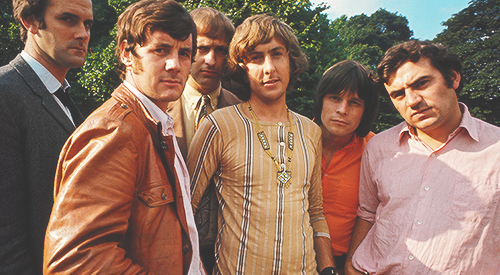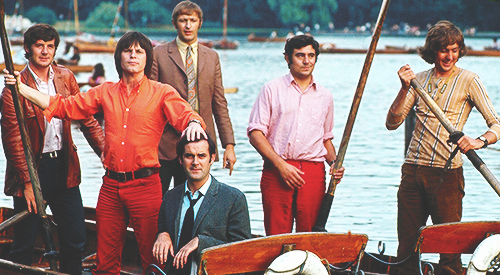President(s) Musk/Trump - R_P - Jun 30, 2025 - 10:12pm
June 2025 Photo Theme - Arches - Alchemist - Jun 30, 2025 - 9:10pm
Please help me find this song - LazyEmergency - Jun 30, 2025 - 8:42pm
The Obituary Page - Coaxial - Jun 30, 2025 - 8:11pm
Immigration - R_P - Jun 30, 2025 - 8:10pm
Trump - Red_Dragon - Jun 30, 2025 - 7:17pm
Radio Paradise Comments - GeneP59 - Jun 30, 2025 - 7:09pm
NY Times Strands - GeneP59 - Jun 30, 2025 - 7:08pm
NYTimes Connections - GeneP59 - Jun 30, 2025 - 7:01pm
Wordle - daily game - GeneP59 - Jun 30, 2025 - 6:55pm
Climate Change - VV - Jun 30, 2025 - 6:50pm
Forum Posting Guidelines - rickylee123 - Jun 30, 2025 - 6:17pm
Name My Band - buddy - Jun 30, 2025 - 5:54pm
Thanks William! - buddy - Jun 30, 2025 - 5:49pm
USA! USA! USA! - buddy - Jun 30, 2025 - 4:50pm
Country Up The Bumpkin - Red_Dragon - Jun 30, 2025 - 3:20pm
Living in America - R_P - Jun 30, 2025 - 3:15pm
M.A.G.A. - R_P - Jun 30, 2025 - 12:50pm
Carmen to Stones - timothy_john - Jun 30, 2025 - 12:07pm
Artificial Intelligence - R_P - Jun 30, 2025 - 11:34am
Gardeners Corner - marko86 - Jun 30, 2025 - 10:39am
Comics! - Red_Dragon - Jun 30, 2025 - 7:59am
Mixtape Culture Club - ColdMiser - Jun 30, 2025 - 7:37am
Today in History - Red_Dragon - Jun 30, 2025 - 7:01am
Birthday wishes - Coaxial - Jun 30, 2025 - 6:36am
Talk Behind Their Backs Forum - VV - Jun 30, 2025 - 5:39am
Music Videos - KurtfromLaQuinta - Jun 29, 2025 - 4:09pm
Global Mix renaming - frazettaart - Jun 29, 2025 - 9:23am
Iran - R_P - Jun 28, 2025 - 8:56pm
Live Music - Steely_D - Jun 28, 2025 - 6:53pm
Bug Reports & Feature Requests - Steely_D - Jun 28, 2025 - 12:05pm
Israel - R_P - Jun 28, 2025 - 12:04pm
What Are You Going To Do Today? - ScottFromWyoming - Jun 28, 2025 - 10:17am
• • • The Once-a-Day • • • - oldviolin - Jun 28, 2025 - 9:52am
Musky Mythology - R_P - Jun 27, 2025 - 3:00pm
Know your memes - oldviolin - Jun 27, 2025 - 11:41am
What Makes You Sad? - oldviolin - Jun 27, 2025 - 10:41am
Calling all Monty Python fans! - FeydBaron - Jun 27, 2025 - 10:30am
Strips, cartoons, illustrations - R_P - Jun 27, 2025 - 10:23am
SCOTUS - Red_Dragon - Jun 27, 2025 - 8:30am
Framed - movie guessing game - Proclivities - Jun 27, 2025 - 6:25am
Democratic Party - R_P - Jun 26, 2025 - 8:40pm
Yummy Snack - Proclivities - Jun 26, 2025 - 1:17pm
Parents and Children - kurtster - Jun 26, 2025 - 11:32am
New Music - miamizsun - Jun 26, 2025 - 6:45am
What Makes You Laugh? - NoEnzLefttoSplit - Jun 25, 2025 - 9:36pm
PUNS- Political Punditry and so-called journalism - oldviolin - Jun 25, 2025 - 12:06pm
Lyrics that strike a chord today... - black321 - Jun 25, 2025 - 11:30am
What The Hell Buddy? - oldviolin - Jun 25, 2025 - 10:32am
Baseball, anyone? - ScottFromWyoming - Jun 25, 2025 - 9:09am
Astronomy! - black321 - Jun 25, 2025 - 8:58am
The Grateful Dead - black321 - Jun 25, 2025 - 7:13am
Outstanding Covers - oldviolin - Jun 24, 2025 - 10:24pm
Billionaires - R_P - Jun 24, 2025 - 4:57pm
Great guitar faces - Steely_D - Jun 24, 2025 - 4:15pm
Buying a Cell Phone - Steely_D - Jun 24, 2025 - 3:05pm
Anti-War - R_P - Jun 24, 2025 - 12:57pm
Photography Forum - Your Own Photos - Alchemist - Jun 24, 2025 - 10:40am
RIP Mick Ralphs - geoff_morphini - Jun 23, 2025 - 10:40pm
Congress - maryte - Jun 23, 2025 - 1:39pm
Europe - R_P - Jun 23, 2025 - 11:30am
Republican Party - islander - Jun 23, 2025 - 8:38am
the Todd Rundgren topic - ColdMiser - Jun 23, 2025 - 7:58am
What are you doing RIGHT NOW? - GeneP59 - Jun 21, 2025 - 6:14pm
Rock & Roll Facts - Coaxial - Jun 21, 2025 - 6:10pm
Poetry Forum - SeriousLee - Jun 21, 2025 - 5:20pm
And the good news is.... - Red_Dragon - Jun 21, 2025 - 3:39pm
Gaje Gipsy Swing - bartanandor - Jun 21, 2025 - 10:53am
Way Cool Video - Steely_D - Jun 21, 2025 - 8:46am
What Did You Have For Breakfast? - miamizsun - Jun 21, 2025 - 8:14am
Hockey + Fantasy Hockey - miamizsun - Jun 21, 2025 - 8:10am
Gotta Get Your Drink On - Antigone - Jun 21, 2025 - 7:53am
PUNS - The BEATLES - oldviolin - Jun 20, 2025 - 3:57pm
RP NEW player error - jk.richards - Jun 20, 2025 - 10:35am
RP App for Android - jk.richards - Jun 20, 2025 - 10:32am
Index »
Entertainment »
Movies »
Calling all Monty Python fans!
Page: Previous 1 , 2 , 3 , ... 20 , 21 , 22 Next
ScottFromWyoming
Posted:
Jul 10, 2014 - 2:17pm
ptooey wrote: I'm currently knocking around Scotland. Thought y'all might get a kick out of this.
I thought I smelled elderberries...
DaveInSaoMiguel
Posted:
Jul 10, 2014 - 1:58pm
ptooey wrote: I'm currently knocking around Scotland. Thought y'all might get a kick out of this.
VIDEO
ptooey
Posted:
Jul 10, 2014 - 1:53pm
I'm currently knocking around Scotland. Thought y'all might get a kick out of this.
R_P
Posted:
Jul 10, 2014 - 10:33am
Proclivities
Posted:
Jul 10, 2014 - 10:19am
n4ku
Posted:
Jun 30, 2014 - 12:35pm
RichardPrins wrote:
I posted this a couple of hours ago in the What Makes You Laugh topic.
R_P
Posted:
Jun 30, 2014 - 12:08pm
R_P
Posted:
Apr 25, 2014 - 7:51pm
Monty Python's reunion to hit big screens in live simulcast
It will be the last time to see them together before they pass on, before they cease to be. Before they kick their buckets, shuffle off their mortal coils, run down their curtains and join their bleeding choirs invisible (metaphorically that is, not literally).
They will be ex-Pythons, but for fans there is good news. Monty Python's last live reunion show is to be broadcast simultaneously to 450 cinemas in the UK and a further 1,500 across the world, it was announced on Thursday.
Picturehouse Entertainment said it had secured the distribution rights to one of the cultural highlights of 2014, if not of all time for the true diehards: the reunion of John Cleese, Terry Gilliam, Eric Idle, Terry Jones and Michael Palin for a 10-night run at London's O2 in July. (...)
JrzyTmata
Posted:
Oct 30, 2011 - 2:49pm
(former member)
Posted:
Aug 15, 2011 - 5:27pm
GeneP59 wrote: Man what I would pay to see 500 John Cleese's doing the funny walk down Wall St.
And scare the sh!t out of those A$$hoes.
Of course, now he's old enough that he walks that way all the time.
GeneP59
Posted:
Aug 15, 2011 - 4:17pm
Proclivities wrote: Man what I would pay to see 500 John Cleese's doing the funny walk down Wall St.
And scare the sh!t out of those A$$hoes.
Red_Dragon
Posted:
Aug 15, 2011 - 3:58pm
Manbird wrote:
what are you, Dutch?
Manbird
Posted:
Aug 15, 2011 - 2:59pm
oldslabsides wrote: a documentary of a documentary, as it were.
No it wasn't.
Red_Dragon
Posted:
Aug 15, 2011 - 2:44pm
hobiejoe wrote: Talking of Monty Python, I read this week that the BBC are producing a
comic drama on the making of, and subsequent controversy over, Life Of Brian.
a documentary of a documentary, as it were.
hobiejoe
Posted:
Aug 15, 2011 - 2:31pm
Talking of Monty Python, I read this week that the BBC are producing a
comic drama on the making of, and subsequent controversy over, Life Of Brian.
Proclivities
Welly
Posted:
Oct 26, 2009 - 1:19pm
Really enjoying the series!
sirdroseph
Posted:
Oct 23, 2009 - 10:10am
I've been watching them on IFC; good stuff!
Welly
Posted:
Oct 23, 2009 - 10:05am
(former member)
Posted:
Oct 23, 2009 - 10:02am
I think he's absolutely right:
dmax wrote: You know who could, in a pinch, fill in for the late Graham Chapman?






